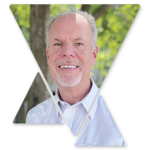
Image from Shutterstock
On November 13th we celebrated National Kindness Day. Sometimes it is powerful to take time out to celebrate what should be a simple, ordinary part of our lives, but too often isn’t. Coinciding with this celebration, Higher Ed Dive published an article citing research by K. Hosoda and M. Estrada on the effect of happiness in the academic work environment.
I hope none of this is surprising to you, but acts of kindness have a positive effect on the workforce, including reducing stress and boosting well-being. Also, kindness often leads to more kindness as we tend to pass it on to others. A kind environment helps employees feel safe and better connected to their peers.
Employees want to work for a kind organization. They want to work for emotionally intelligent leaders. When these things are present, employee engagement increases, and employees are more accepting to change, even when it might adversely affect them. A kind work environment results in improved institutional identity.
Read more: “Five Lessons on Leadership from ‘Ted Lasso'”
What I can tell you from my research is that happy workers are better workers. They have lower rates of absenteeism, higher productivity, better quality, and are less likely to quit. There is also research showing that happier workers have a positive effect on the organization’s bottom line. Again, none of this should be a surprise to anyone who has been around the block a few times, but it is fantastic to be able to support this common sense with academic research.
Now, if we all acknowledge that being kind to employees has hugely positive benefits to the organization, why doesn’t everyone act this way? Is being kind more expensive than being unkind? I doubt it. Does being kind reduce levels of authority or power? I don’t believe so. Will being kind cause you to lose business? Maybe, in some odd circumstances, but generally it should have the opposite effect.
Kindness comes from an organization’s culture. The culture is the common reflection of the shared values of the people who work for the organization. While culture is the accumulation of everyone’s’ values, it can, and should be, driven from the top. If leaders regularly exhibit the values that they want the organization to embrace, then those values will permeate the culture. If, on the other hand, when leaders act contrary to the organization’s stated values, the culture will reflect their behavior.
Read more: “Five Long-Term Benefits of Developing Leaders”
Therefore, if you are an organizational leader, the ball is in your court. What you do and what you say will permeate the organization. We now have empirical proof that kindness matters, so I strongly encourage you to practice it each and every day. Your employees, and your bottom line, will appreciate it.

Dr. Roger Dusing, Senior Consultant & Higher Education Practice Leader, comes to OMNI from Park University, where he served as Chief Human Resource Officer for eleven years. With over 40 years of HR experience, including 30 years in C-suite level roles, he looks forward to reflecting his passion for higher education in his work to bring affordable, high-quality HR services to small- to medium-sized colleges and universities.
Roger holds a PhD in Business Management, with a concentration in Human Resources from Northcentral University, a Master of Science in Administration from Central Michigan University, and a BS in Industrial Engineering from Bradley University. He also authored the book “I’m Fired?!? A Business Fable About the Challenges of Losing One Job and Finding Another.”

